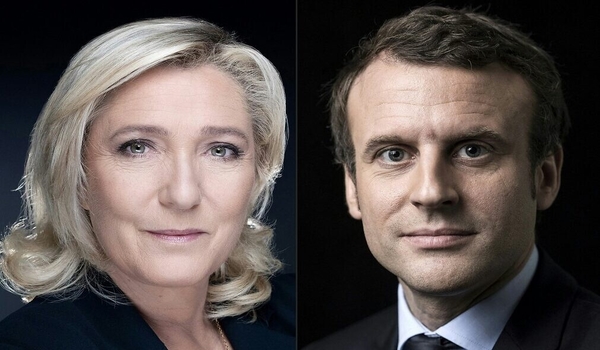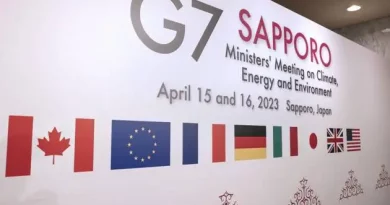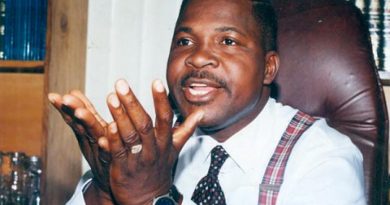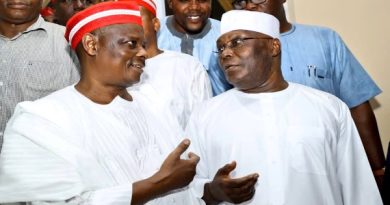Macron, Le Pen clash on Russia, Europe, climate and economy in TV debate Wednesday
Russia and Europe featured early as Emmanuel Macron and Marine Le Pen clashed in their live televised debate on Wednesday night, four days before the decisive vote in France’s presidential election.
The debate began with opening statements from the candidates, with Le Pen saying that “France’s greatest asset is its people”. Calling herself a “spokesperson for the French”, she decried having seen them “suffering” and worrying about a general “precariousness” over the past five years.
The incumbent, Emmanuel Macron insisted that this period had seen “unprecedented crises”, citing the COVID-19 pandemic and the war on European soil in Ukraine. Macron said he wanted to “make our country more independent and stronger through its economy, through work, through research, innovation, through its culture”.
“Another choice is possible”, Le Pen said at the outset, claiming she would be “president of everyday life” as she kicked off the contest with the outgoing president. The incumbent, meanwhile, began by vowing to “take hold of the environmental question” and to “make Europe stronger”.
The far-right challenger, Le Pen — who qualified for next Sunday’s run-off along with Macron after the first round on April 10 — was under pressure to land a significant blow on her adversary, who has extended his lead in recent days according to opinion polls.
As the debate turned early to Ukraine, Macron went on the offensive, accusing his rival of “depending on Russian power” and “on Mr Putin” for having “taken out a loan from a Russian bank”. Alexei Navalny the imprisoned Russian activist and challenger of Putin had earlier warned that Le Pen is too close to Putin and calls on voters to back Macron.
“You talk to your banker when you talk about Russia, that’s the problem”, he alleged.
His opponent rejected the charge, insisting she was “patriotic (…) an absolutely and totally free woman”. She accused Macron of adopting an “undignified” and “dishonest” stance.
In 2014 the former National Front party (now “National Rally”) took out a €9 million loan from a Russian bank. Le Pen has justified seeking financing from Russia by citing the refusal of French banks to do so.
Although she said she categorically condemned Russia’s invasion of Ukraine, Marine Le Pen has been profuse in the past in her admiration for Vladimir Putin, defending, in particular, Russia’s annexation of Crimea. Despite the current war, her manifesto advocates closer security ties with Moscow.
Macron also quickly went on the attack over Le Pen’s position in Europe. The far-right candidate wants to implement a policy of “national preference”, to pull France out of the EU’s energy market, and to establish the supremacy of French over EU law. All subjects would put France on a collision course with the EU.
His opponent insisted that she wanted to “stay in the European Union”, but “deeply modify it to bring about a ‘European alliance of nations'”.
But Macron accused Le Pen of failing to spell out her true intentions. “Your plan is to leave the EU. You’re lying about what’s on offer. Europe is a joint ownership property, you cannot decide on your own to paint the facade with gloss,” he said.
On the environment, Le Pen accused Macron of being a “climate-hypocrite”, while she in turn was described by her rival as a “climate-skeptic”.
As the debate heated up, the challenger sarcastically suggested the president wanted to install wind farms everywhere except the north coast resort of Le Touquet where Macron has a second home. “You’re serious?” was his retort.




